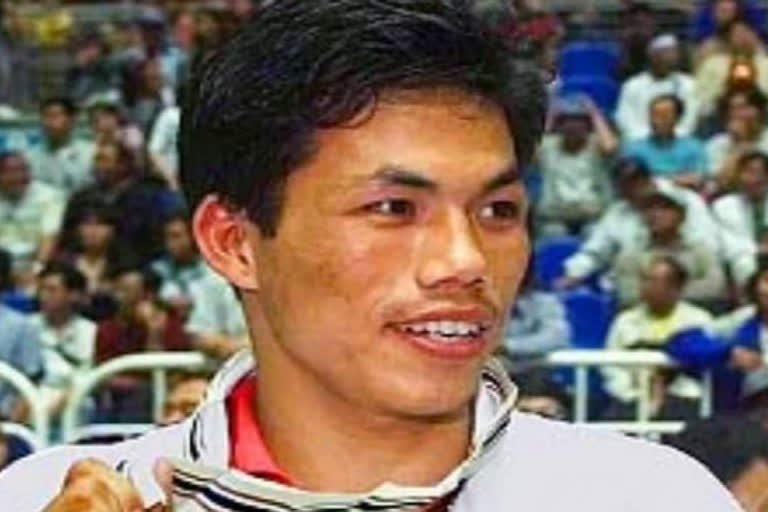New Delhi:He exploded on the scene like a seasoned superstar. Not many fit this description in Indian sports, especially without an Olympic medal, but then Dingko Singh was unlike most.
All of 42 and four years after losing over 70 per cent of his liver to cancer, Dingko breathed his last at his Imphal home on Thursday, leaving Indian boxing stunned and the many he inspired with a deep sense of void in their lives.
His single biggest sporting achievement was an Asian Games gold in the 1998 Bangkok edition, which was India's first in 16 years. But bigger than that was the impact he had on those who watched him out-punch two Olympic medallists that year.
"Oh my god, he was spectacular. That style was something else," recalled M C Mary Kom while talking about how she excitedly queued up to watch him fight in a show bout in Manipur after he came back from the Asiad.
For her it was like finding a hero closer home as she chased her boxing dreams.
Read: PM Modi condoles death of Asian Games gold-winning former boxer Dingko Singh
That was the Dingko effect on a generation of accomplished north-eastern boxing stars, including M Sunranjoy Singh, L Devendro Singh and L Sarita Devi among several others.
"I never knew I had that kind of impact. I never intended to," Dingko had told PTI in an interaction back in 2010.
He was in the capital to watch the Commonwealth Games at that time and was enjoying his anonymity in the spectators' gallery before PTI caught up with him.
He couldn't be faulted for being blissfully unaware of his impact. He never really got the time to assess it.
Dingko was born to a poor family in Imphal's Sekta village and meagre resources forced his parents to leave him at a local orphanage.
It was there that scouts from the Special Area Games Scheme (SAG) started by the Sports Authority of India (SAI) first noticed the raw boxing talent in him.
Talented he definitely was, add to that mix a famously mercurial personality and it all added up to make a fearless campaigner in the ring and a daunting man to manage outside it.
"He could not be controlled by anyone. He could not be subdued by anyone," recalled Akhil Kumar, a Commonwealth games gold-medallist who has been with him in national camps.
Indian boxing got the first glimpse of Dingko's talent at the 1989 sub-junior nationals in Ambala where he became a champion as a 10-year-old.
From there began the journey of his development into a world-class bantamweight pugilist, the one who seemed ready to explode at the biggest stages, against the toughest opponents.
"Those left hooks, that aggression, he was so inspiring. I saw him intently during a National championship. What a personality he had. I know how ferocious he was because I have also taken a few of his punches during national camps," said Akhil.
That ferocity of blows was reflective of Dingko's persona too. He famously threatened to commit suicide after it appeared in newspapers that he had been dropped from the 1998 Asiad.
Read: Asian Games champion boxer Dingko Singh no more
He was eventually named in the squad and proved his worth with a gold, subsequently honoured with Arjuna award and the Padma Shri for that career-defining moment.
